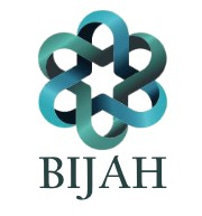Forgiveness and How to Do It
Forgiveness is to practice self-acceptance, which clears self-sabotaging bonds of victimhood and their painful wounds from the past.
INSPIRATION
Ariana Hitch
12/1/20233 min read
"I forgave myself by taking responsibility for how I chose to respond to the past trauma. At the time, I chose to respond with resentment, however later down the track, I chose to acknowledge that choice as my own and not continue to punish myself with the feeling of resentment. Instead, I thanked my past-self for giving me something to springboard off and reflect upon, and I thanked her for doing her best with the tools she had at that moment in time. For empowering me now with insight and knowledge to respond differently."
To Forgive Others is Forgiving the Self
To forgive another person or circumstances is the most generous thing you can do for yourself. When you forgive others for perceived transgressions it frees you from the bonds, entanglements, and cords which manifest painful patterns such as judgments, resentments, and anger.
Forgiving yourself is the most important action you can take, to clear self-sabotaging bonds of victimhood and their painful wounds from past, present, and future.
Forgiveness is to Practice Self-Acceptance.
The practice of self-acceptance is about openly and humbly acknowledging aspects within yourself that make you feel bad, such as; inadequacy, defensiveness, embarrassment, or unworthyness, which is separate from the true essence of your authentic self. As a forgiveness technique, self-acceptance allows you to acknowledge that you are unconditionally loved and accepted – flaws, foibles, and all. This does not mean that you ignore the flaws or stop making genuine attempts to improve yourself, but this understanding allows you to value your true self above all else, without the need for self-punishment. By acknowledging your whole self, you recognize self-worth, and then you start to generate personal power that overcomes allowing these weaknesses and obstacles to be used to impede your growth and evolution throughout life. To love yourself unconditionally and grant yourself the necessary time to heal.
Understand that the importance of self-acceptance is that it brings you to the current state of now, rather than dwelling on past hurts and pain. Self-acceptance allows you to live in the present instead of the past, which means that you can move into the future with a renewed sense of purpose that is focused on change, improvement, and building on current experiences.
However, some individuals may struggle with self-acceptance due to their attachment to negative emotions such as anger, resentment, and blame. They may have developed a sense of identity around their pain and fear of losing their identity if they let it go.
They may also be gaining secondary benefits, which results in receiving attention -- be it for a negative event.
Ask yourself if feeling victimized and angry, being hurt, and being a reactive person is the identity you want to show the world and live with as your image.
Is the familiarity of being in the victim or victimizer role, or the perceived ego security of this mode of thinking, actually worth the energy, effort, and harm it is causing you?
It is important to remember that forgiving does not equate with forgetting or approving of the actions of the past. This misunderstanding can also cause an individual to feel that it's not right to forgive oneself because, in the process of doing so, it's akin to condoning past wrongdoing. Instead, each painful or negative experience can be transformed into an opportunity for growth and self-mastery. By embracing these experiences, you can be guided into higher wisdom and end the cycles of resentment, bitterness, and self-blame that come with clinging to the emotional pain of the past.
If this is the factor that is preventing you from forgiving yourself, keep in mind that forgiveness is a mindful process where one continually acknowledges what happened without condoning something that was considered wrong as being instantly made just.
It's perfectly fine to say: "Even though I am feeling angry, I totally accept and love the parts of me that feel this anger and I am willing to move on for the sake of my health, my well-being, and those around me."
Affirming this is spiritually healthy and allows you to break the cycle of self-harm that you’ve fallen into by openly acknowledging flaws and having the intention to improve and strengthen your character from now on. Through consistent acts of self-love, individuals can build self-esteem and ultimate self-acceptance and liberation of the punishment cycle.
Contacts
hello@bijah.uno
021 068 6094
